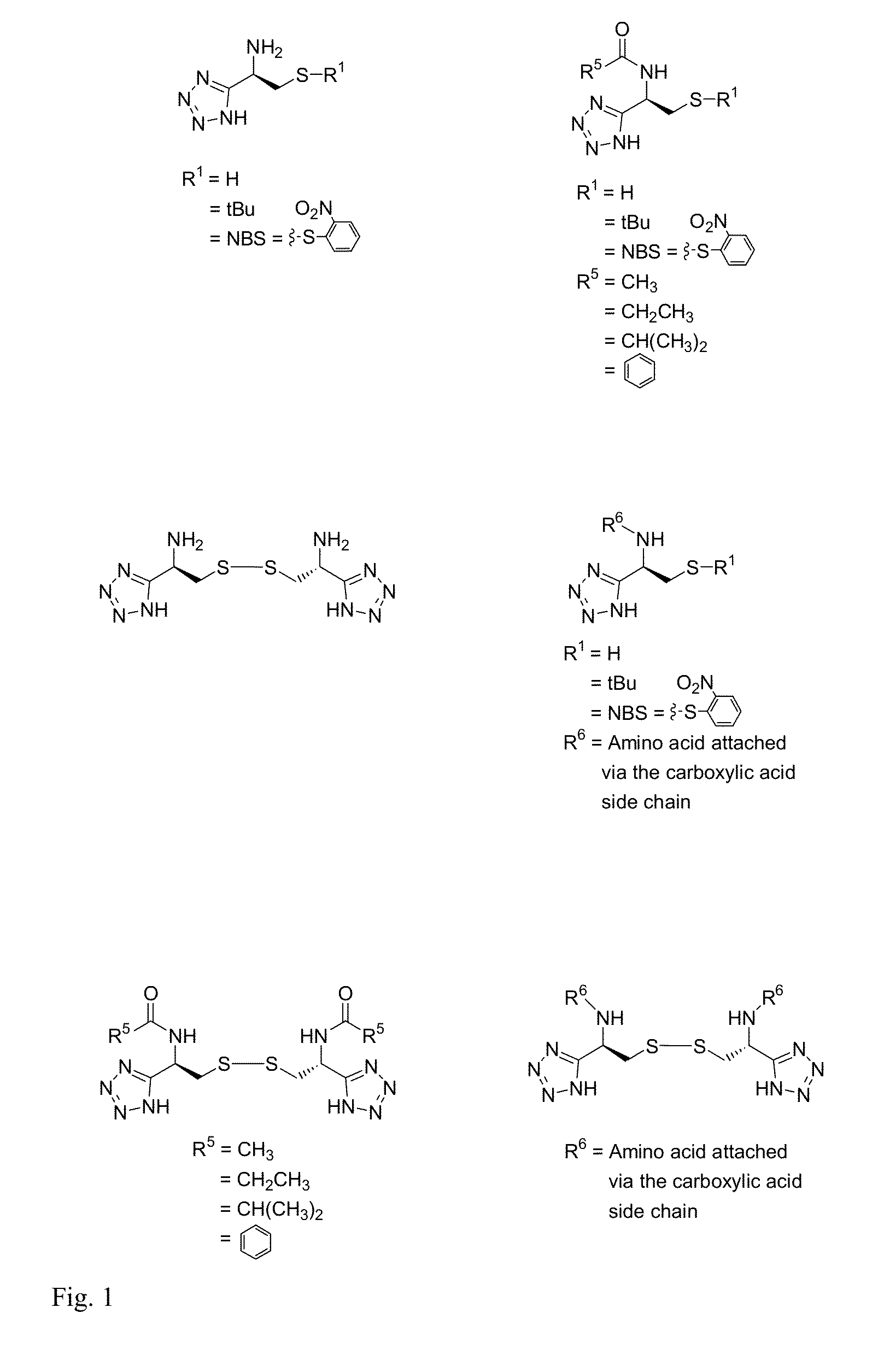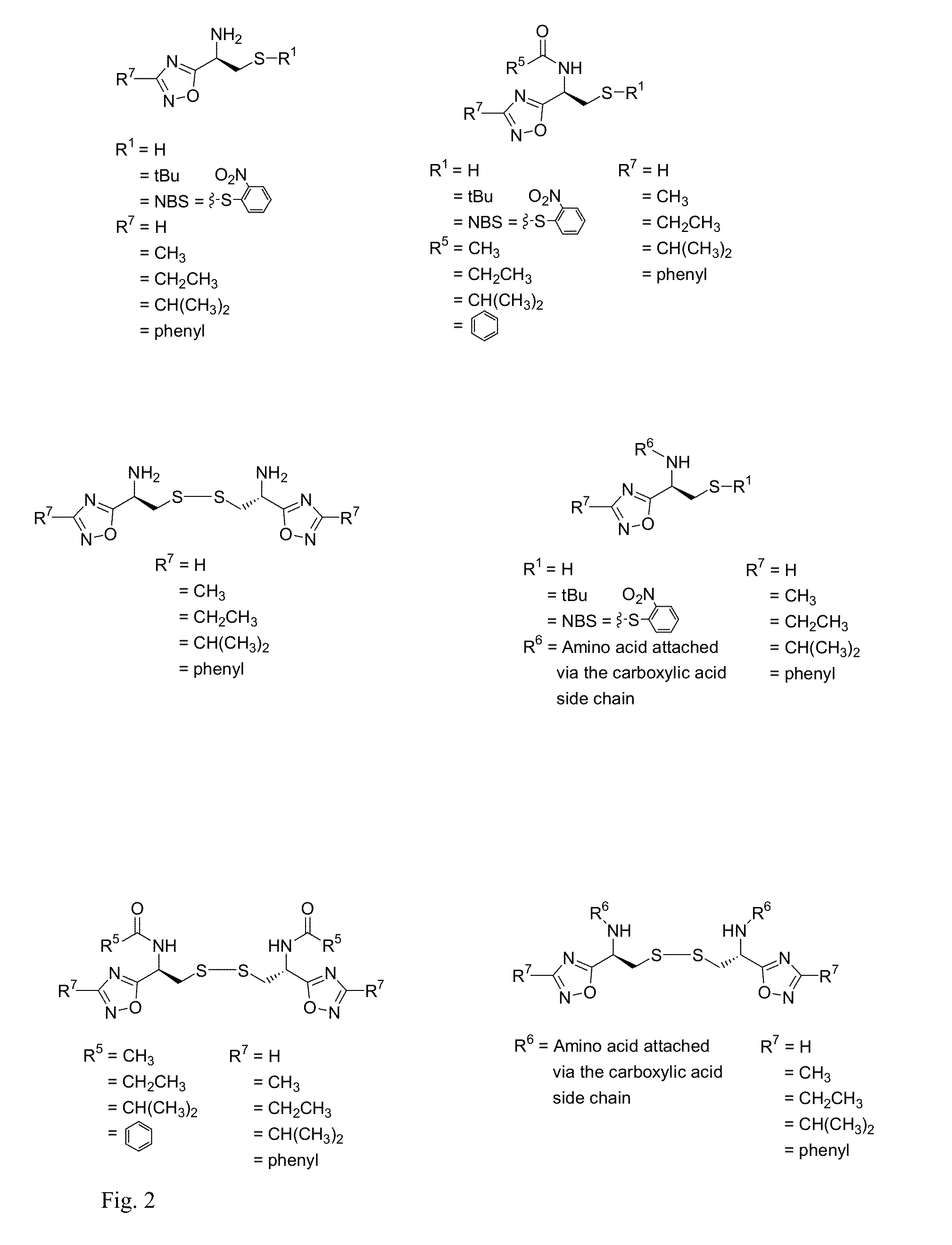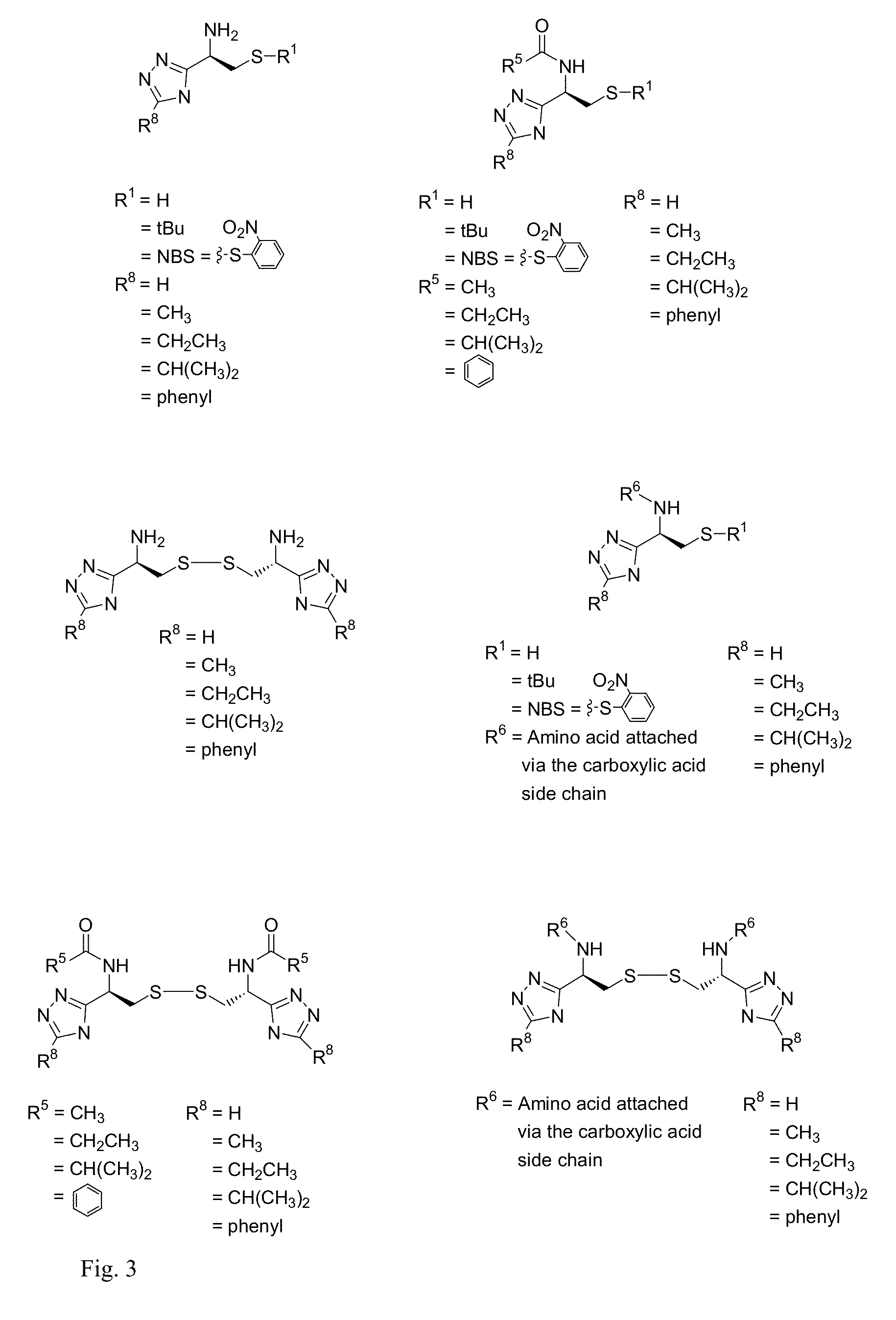Cysteine and cystine bioisosteres to treat schizophrenia and reduce drug cravings
a technology of cystine and cystine, which is applied in the field of treatment of schizophrenia and drug addiction, can solve the problems of clozapine being briefly withdrawn from the market, patients having to undergo routine treatment, and expensive hematological monitoring, and clozapine is only approved for treatment-resistant schizophrenia
- Summary
- Abstract
- Description
- Claims
- Application Information
AI Technical Summary
Benefits of technology
Problems solved by technology
Method used
Image
Examples
example 1
[0129]
[0130]N,N′-Bis(tert-butoxy)carbonlycysteine (21): To a solution of commercial L-cysteine (15 g, 0.06 mol) in aq NaOH (1M; 125 mL), a solution of di-tert-butyldicarbonate (41 g, 0.187 mol, 3 equiv) in dioxane (60 mL) was added at 0° C. The reaction mixture was stirred at 0° C. for 5 min, then at rt overnight. Half the volume of dioxane was evaporated under reduced pressure and the mixture was extracted with ethyl acetate (3×50 mL). The combined aqueous phases were acidified (pH 1) with aq HCl (1M) and extracted with ethyl acetate (3×50 mL). The combined organic layers were washed with brine, dried (Na2SO4), filtered and concentrated under reduced pressure to afford protected cystine in 65% yield as white solid. 21: m.p. 148˜151° C. 1H NMR (DMSO-d6): δ 1.46 (s, 9H), 2.84-2.92 (m, 1H), 3.07-3.13 (m, 1H), 7.19 (d, 1H, J=9 Hz), 12.8 (s, 1H); 13C NMR (75.5 MHz, DMSO-d6): δ 28.5, 53.0, 54.1, 78.6, 85.9, 155.7, 172.8. This material was employed directly in the next step.
example 2
[0131]
tert-Butyl (1R,1′R)-2,2′-disulfanediylbis(1-(3-isopropyl-1,2,4-oxadiazol-5-yl)ethane-2,1-diyl)dicarbamate (22):
[0132]To a solution of Boc-L-cystine, 21, (1.8 g, 4 mmol), isobutyl-rimidoxine (875 mg, 8.58 mmol), hydroxysuccimide (987 mg, 8.58 mmol) in THF (20 mL) was added at 0° C. over 15 min a solution of DCC (1.78 g, 8.64 mmol) in THF (10 mL). The mixture was stirred for 16 h while the temperature was allowed to warm to 20° C. The mixture was cooled to 0° C. and the precipitate which formed was removed by filtration. The filtrate was concentrated under vacuum and then dissolved into ethyl acetate (50 mL). The small amount of precipitate formed and was filtered out. The organic layer was washed with diluted sodium bicarbonate, brine, dried (Na2SO4) and removed under reduced pressure to give Boc-L-cystine bis(acetamidoxime) ester as white crystals. This material was taken up in toluene (100 mL) and the mixture was heated at reflux for 3 h, the water formed being removed by a ...
example 3
[0133]
[0134]tert-Butyl (1R,1′R)-2,2′-disulfanediylbis(1-(3-methyl-1,2,4-oxadiazol-5-yl)ethane-2,1-diyl)dicarbamate (23) was prepared in 50% yield following the above procedure for 22, except the solvent was replaced with DMF to dissolve actetamidoxine. 23: m.p. 138˜140° C. 1H NMR (500 MHz, CDCl3): δ 1.40 (s, 9H), 2.35 (s, 3H), 3.23 (s, 2H), 5.27 (s, 1H), 5.82 (s, 1H); 13C NMR (500 MHz, CDCl3): δ 11.8, 28.5, 42.2, 48.0, 81.0, 155.2, 167.6, 176.7. HRMS m / z C24H40N6O6S2(M+H)+ calcd 517.1903, found 517.1912.
PUM
 Login to View More
Login to View More Abstract
Description
Claims
Application Information
 Login to View More
Login to View More - R&D
- Intellectual Property
- Life Sciences
- Materials
- Tech Scout
- Unparalleled Data Quality
- Higher Quality Content
- 60% Fewer Hallucinations
Browse by: Latest US Patents, China's latest patents, Technical Efficacy Thesaurus, Application Domain, Technology Topic, Popular Technical Reports.
© 2025 PatSnap. All rights reserved.Legal|Privacy policy|Modern Slavery Act Transparency Statement|Sitemap|About US| Contact US: help@patsnap.com



